Musings from Students of the Pardes Institute of Jewish Studies in Jerusalem
Posted on February 28, 2014 by Benjamin Friedman
“Without a profound simplification the world around us would be an infinite, undefined tangle that would defy our ability to orient ourselves and decide upon our actions…. We are compelled to reduce the knowable to a schema.”
-Primo Levi
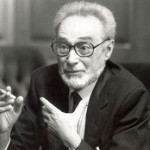 The above quotation by Holocaust survivor Primo Levi says something profound yet simple about human nature and our relationship to history: for better or for worse, we seek to convert history into something comprehensible. This value put upon intelligibility may also help explain my difficulty writing and talking about my experience on the Germany Close Up trip so far. The contrast between the abundance of reflections from the Turkey trip participants and the relative silence of the Germany participants suggests something similar too: how very hard it’s been to make intelligible what we all experienced there.
The above quotation by Holocaust survivor Primo Levi says something profound yet simple about human nature and our relationship to history: for better or for worse, we seek to convert history into something comprehensible. This value put upon intelligibility may also help explain my difficulty writing and talking about my experience on the Germany Close Up trip so far. The contrast between the abundance of reflections from the Turkey trip participants and the relative silence of the Germany participants suggests something similar too: how very hard it’s been to make intelligible what we all experienced there.
To this point, I have only been able to speak about this whirl-wind, perhaps life-changing, ten-day journey into Deutschland in the most fuzzy, abstract, and contradictory language (“the experience was really meaningful…but also really difficult…but also it was a lot of fun at times…but not…um… too much fun…ya know…?). Perhaps it also account for the reticence of some of my fellow Pardes travelers to write about their own experiences (despite Bogo’s certain prodding).
I for one have had difficulty relegating the mass of emotion and data (including a 300+ page information packet we were given at the start of the trip) into a coherent schema. But reconciling the positive — the warmth and hospitality of our German hosts and guides, the progressive, artsy, modern feeling of the city of Berlin, the surprising and inspiring vitality of the Jewish communities we visited — with the historical elephant(s) standing brazenly in the room with us, feels like a very important personal imperative with which to wrestle.
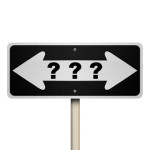 In very short, the trip felt like this:
In very short, the trip felt like this:
I like it here.
This is where the Final Solution was masterminded.
…both?!
…both.
Two things, however, stimulate me to make a first serious attempt at this meaning-making exercise today: the first is my upcoming participation in the Encounter Program in Bethlehem (tomorrow). I want to make some effort to consider both my own experience in Germany, as well as the historical experience of Jews in Germany — where, as a persecuted minority many made brilliant contributions to a similarly brilliant culture-sphere (the land equally of Kant as of Moses Mendolsohn, of Einstein as of Beethoven, of Heine as of Goethe, of Buber as of the Brothers Grimm), eventually facing the ultimate betrayal — before fully engaging my mind and heart with the question of the Jews as the ruling power in a sliver of land with a politically and socially dispossessed minority of its own (that would be here, Israel). Don’t think for a second that I’m drawing an equivalency — l’havdil — but as narratively and historically interwoven realities, I wrestle to find deeper meaning in both the differences…and similarities.
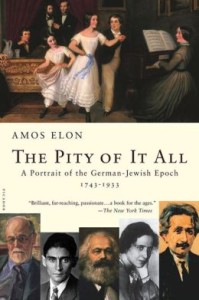 Connecting the historical threads of the European Jewish past with my own American-Jewish upbringing, with the current Israeli-Jewish present was one of the motivating factors in my coming to Israel this year. In fact, reading The Pity of It All: A Portrait of the German-Jewish Epoch by Amos Elon, while at perhaps my furthest away point from Jewish community two years ago, began my inward journey back, towards this year in Israel. Having the opportunity to study European Jewish history with David Bernstein, to visit Germany with David as Jewish guide (accompanying several German guides), and to now take Israeli history this term with David as well, has been a great blessing, and a profoundly important part of my experience this year.
Connecting the historical threads of the European Jewish past with my own American-Jewish upbringing, with the current Israeli-Jewish present was one of the motivating factors in my coming to Israel this year. In fact, reading The Pity of It All: A Portrait of the German-Jewish Epoch by Amos Elon, while at perhaps my furthest away point from Jewish community two years ago, began my inward journey back, towards this year in Israel. Having the opportunity to study European Jewish history with David Bernstein, to visit Germany with David as Jewish guide (accompanying several German guides), and to now take Israeli history this term with David as well, has been a great blessing, and a profoundly important part of my experience this year.
This educational sequence has given me a chance to experience the modern Jewish story with far more coherence than ever before. My visit to the West Bank tomorrow may be a last major piece to this particular course of study, but as with the Germany experience, I expect it to be an overwhelming gulp of emotional data that will take time to process. Still, I can and will (soon) say some things about what I have processed and integrated to this point of my Germany experience. I expect that my visit to the West Bank will inform, shape and continue to flesh out the greater narrative of coherence that I am trying to produce for myself (those in Tzvi’s Jewish Philosophy Course will especially appreciate the intention).
But we shall have to wait and see on that front.
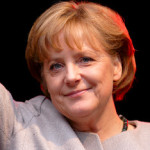 The other thing that finally got me to sit down today and wrestle with the experience was seeing German Chancellor Angela Merkel on the front page of the Jerusalem Post this morning, receiving the Presidential Medal of Distinction — the highest civilian honor Israel has to bestow — for her support of Israel and strong stance against anti-Semitism. Next to it was an odd little puff-piece about a photograph of Merkel and Netanyahu that went viral on Twitter, because of an ill-placed shadow cast on Merkel’s upper lip by Netayahu’s outstretched hand. The resemblance this produced to the iconic facial hair of a far more evil German Chancellor was the source of nervous laughter, mild embarrassment, and a strange, uncanny feeling of emptiness in this observer. The emptiness of a misplaced signifier. And a sublime irony at a deeper level that suggest to me that people should not forget the past, even after healing from it occurs.
The other thing that finally got me to sit down today and wrestle with the experience was seeing German Chancellor Angela Merkel on the front page of the Jerusalem Post this morning, receiving the Presidential Medal of Distinction — the highest civilian honor Israel has to bestow — for her support of Israel and strong stance against anti-Semitism. Next to it was an odd little puff-piece about a photograph of Merkel and Netanyahu that went viral on Twitter, because of an ill-placed shadow cast on Merkel’s upper lip by Netayahu’s outstretched hand. The resemblance this produced to the iconic facial hair of a far more evil German Chancellor was the source of nervous laughter, mild embarrassment, and a strange, uncanny feeling of emptiness in this observer. The emptiness of a misplaced signifier. And a sublime irony at a deeper level that suggest to me that people should not forget the past, even after healing from it occurs.
The past comes back to shake us up. Remind us that the present is just a tiny piece of the picture. We may not know what to do with it. But it’s there. Still.
Before going to Germany, I had some intellectual sense of Germany as a progressive modern European state as well as ally of Israel’s. But the emotional disconnect from the Holocaust education of my youth to the current reality was enormous. In Germany, I experienced an imperfect present: a society still wrestling with shame, distancing itself from its past through abstract intellectualization and the most precisely sensitive use of language imaginable, trying to make amends still through pervasive memorialization and an earnest stance against anti-Semitism, xenophobia, and extreme-nationalism. Reminders of the past are so pervasive here though, that young people burn-out on “the Holocaust stuff” and let it recede into the background, getting on with their everyday lives. And it’s hard to blame them, really.
Something occurred to me while in Germany, wrestling with a discomfort that came up as I watched our group flipping back and forth between solemn witnesses to deep history and relaxed tourists in a fun city: remembering the past is a collective responsibility, just like giving tzedaka, or any other facet of tikkun olam. But no one person can complete the work themselves — each person has to give a part of their consciousness to witnessing, to remembering, to honoring, and only by opening ourselves up to that space, can we make peace with those troubled spirits of the past, and do them justice.
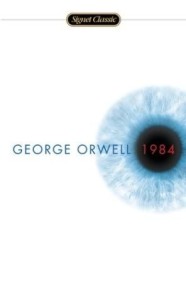 Burying history is a terrible thing, as anyone who has read Orwell’s 1984 should remember — but getting buried in history, as many young Jews confronted with the horror of the Holocaust from a young age are, (as well as many young Germans, from a different angle), can be an unmanageable burden. Finding a healthy balance is key, and in that conversation and question, Germany and Israel are inextricably linked in a negative symbiosis that can actually become positive if the two countries continue to learn and grow from their shared tragic past together, as well as honoring and remembering all the enormous genius and beauty that arose out of their centuries of co-existence before the catastrophe.
Burying history is a terrible thing, as anyone who has read Orwell’s 1984 should remember — but getting buried in history, as many young Jews confronted with the horror of the Holocaust from a young age are, (as well as many young Germans, from a different angle), can be an unmanageable burden. Finding a healthy balance is key, and in that conversation and question, Germany and Israel are inextricably linked in a negative symbiosis that can actually become positive if the two countries continue to learn and grow from their shared tragic past together, as well as honoring and remembering all the enormous genius and beauty that arose out of their centuries of co-existence before the catastrophe.
Another thought that emerged out of my time in Germany was the following: that learning lessons from the past, rather than evading it, or being swallowed up by it, is also essential in handling the present. While we were on the trip in Germany, I watched the BBC World News report on ethnic cleansing breaking out in the Central African Republic. I heard about new death tallies in Syria and Iraq. I watched a live speech by President Obama cravenly defending the NSA against allegations of abuse of power in its monitoring capacity over US citizens (and German ones too — ties between the US and Germany were strained when an American surveillance machine called “Einstein” was discovered to be tapping Angela Merkel’s personal cell phone!). All of these pivotal and disturbing world events are happening in a chaotic swirl around the globe as we live our lives, every day, and for the most part, we can barely keep up with it all. I realized that in an age as complex and confusing as ours, we need to not only make a coherence out of the past, but also out of the present. But again, there has to be a kind of balance.
…Nor may we abandon it.
In Germany today, the world’s second-fastest growing Jewish community is only starting to come out of the shadows of a murky and complex post-war past. This peaceful re-nascence of a Jewish community in Germany is something that is intellectually feasible, yet something else altogether when encountered in person. Like a bromeliad in the arctic, like snowfall in Gehenna, the Jewish community in Germany stood before me like a thing that by all logic and reason should not be, yet was indeed there, and vital. Kids playing in the lobby. Old Jewish men inviting us to kiddushes we were not actually supposed to be at. Melodies to prayers warmly familiar to my ears.
Sure, there were problems. But where are there not?
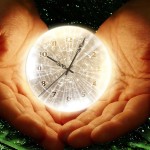 Now I ask, can a comprehensible schema be made out of a world in which Jews can live in peace in a land where, only a little over a half a century ago they were being brutally exterminated? To me, the ability of time to heal wounds, the ability of the traumatic past to loosen its tight grip on us comes from encountering and dialoguing with the past, with each other, and with our own depths with openness and faith, taking in the incomprehensibility and recognizing that maybe the ugliness in the story is ours to bear, but that the ability of the story of life to curve back towards peace and beauty over time…that belongs to G-d.
Now I ask, can a comprehensible schema be made out of a world in which Jews can live in peace in a land where, only a little over a half a century ago they were being brutally exterminated? To me, the ability of time to heal wounds, the ability of the traumatic past to loosen its tight grip on us comes from encountering and dialoguing with the past, with each other, and with our own depths with openness and faith, taking in the incomprehensibility and recognizing that maybe the ugliness in the story is ours to bear, but that the ability of the story of life to curve back towards peace and beauty over time…that belongs to G-d.
And my belief is that it’s simply our responsibility to help in what little ways we can.
A Jewish community living, peacefully, happily in modern Germany? The political leader of Germany being awarded a medal by Israel for fighting anti-Semitism? Maybe it all seems incomprehensible. But in this, the week that the world’s oldest living Holocaust survivor passed away at 110, we can hopefully, maybe, through programs like Germany Close-Up start to see the legacy of Holocaust education and remembrance as one that has paid some miraculous dividends, yet still has much to teach us.
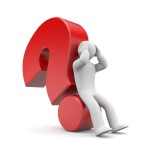 For, in a world where the Jews of Pardes can study Rashi in Rashi’s Yeshiva in Worms, break bread with Russian Jewish Seminarians in Berlin, befriend Germans one day, honor the dead at Sachsenhausen Concentration Camp the next, admire the sacrifices of German resistance fighters the next, and pray in the high-German Reform style for Shabbas in a synagogue that was saved from the Gestapo by a brave German police officer, yet further on…is it not unfeasible that the incomprehensible struggle for peace here in Israel will some day find its just culmination too?
For, in a world where the Jews of Pardes can study Rashi in Rashi’s Yeshiva in Worms, break bread with Russian Jewish Seminarians in Berlin, befriend Germans one day, honor the dead at Sachsenhausen Concentration Camp the next, admire the sacrifices of German resistance fighters the next, and pray in the high-German Reform style for Shabbas in a synagogue that was saved from the Gestapo by a brave German police officer, yet further on…is it not unfeasible that the incomprehensible struggle for peace here in Israel will some day find its just culmination too?
A wall in the heart of Germany was erected in the early 20th century, like the hardness in Pharaoh’s…and only later did a real wall divide Berlin, a punishment against it, separating families, and fragmenting a nation, like a karmic midah kneged midah for the horrific crimes of the past. In Israel, a wall was put up by an Israel with power, in self-defense, yet one with the capacity of working in the opposite direction, of hardening hearts and furthering enmity between peoples.
L’havdil.
And yet, my mind, like Primo Levi’s reaches for, yearns for, meaning in it all. In the way history echoes, rhymes, yet never completely repeats. Perhaps that’s why I took classes in German literature, film, and philosophy in college. Perhaps that’s why I’m here in Israel this year studying Jewish history so fervently. Perhaps that’s why I have dug so deeply into the past for order, patterns, signs. Because the present, the status-quo only seem like a permanent condition, when the “infinite undefined tangle” of the past — and the farther off present of a global age — is not wrestled with, by all of us, to produce a historical (and global) consciousness that holds the weight of earnest faith that there is hope.
And that’s what I got from my trip to Germany.
More tangled in history, and the very pressing, real matter of the difficult present world we live in.
And grateful for it.
To be continued…